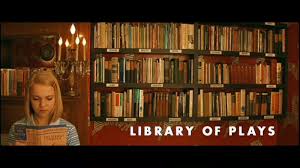Wes Anderson is one of those directors who has a very distinctive style; even though he has hundreds of imitators (namely the entirety of mumblecore), you can immediately tell an Anderson film when you see it. This is certainly not a bad thing, since Anderson is very good at what he does. And as such, The Royal Tenenbaums is the quintessential Anderson film, establishing and expanding the tones, styles, and archetypes that mark his entire filmography.








The film presents a glimpse into the lives of the Tenenbaums, a family of geniuses who are experiencing various troubles. The patriarch, Royal (Gene Hackman), is a gambler and a lout, and has been estranged from his family for years. Matriarch Etheline (Anjelica Huston) is looking to fill the void that Royal has left in her life, turning to archeology and her accountant Henry Sherman (Danny Glover). Chas (Ben Stiller), the oldest son, was successful as a businessman but, thanks to his daddy-issues and the recent death of his wife, is a bundle of neuroses, obsessed with safety and keeping his kids involved in business. Margot (Gwyneth Paltrow), the adopted daughter, is a rebellious, chain-smoking playwright, unhappily married to writer Raleigh St. Clair (Bill Murray) and having an affair with childhood friend Eli Cash (Owen Wilson, who co-wrote the script with Anderson). Finally, the youngest son, Richie (Luke Wilson), was Royal's favorite child, a tennis prodigy, but fell in love with his sister and has been crushed by her romantic encounters with other men.
In short, its a royally messed-up family. Anderson's films have often dealt with how a certain attribute can hinder a person (think obsession in The Life Aquatic with Steve Zissou or regret in The Darjeeling Limited), and here its genius that is destroying the Tenenbaums. Despite their talents and intellect, they're all stuck in their respective moments of greatness, a theme that Anderson plays out magnificently. Each character wears the same kinds of clothes throughout the film, with the same basic look. The setting, too, recalls an earlier age; even though its set in Manhattan, there's not a single skyscraper to be seen, nor are there any landmarks to distinguish it (a masterful accomplishment by Anderson, as it was filmed on location in New York). This sets the stage for the main premise of the film: locked in their own glory days, each Tenenbaum has to catch up with the present, moving past those peaks and accepting who they are now.
I am an unabashed fan of Wes Anderson. I think all of his films are praiseworthy, and his directoral style has never disappointed. Many directors say that film is a canvas on which they paint, but Anderson takes this idea seriously, as any single frame could be considered a work of art. Just look at some of these images from the film; its hard to argue that he's a fantastic visual director.
But not enough is said about how well he works with actors. The Wilson brothers do some of their best work in his films, particularly this one. Hackman and Huston are equally terrific, turning in great ensemble performances that manage to stand out by not stealing the show. Paltrow too is fine, and Stiller has arguably never been better here. Its the kind of role he's played again in more mainstream fare (Along Came Polly comes to mind), but this film is a great reminder that he can be truly revelatory when his performance his subdued rather than rambunctious. And you can practically credit Anderson for kick-starting Murray's late-career reinvention as a understated comic actor, a trend he's carried to his first Oscar nomination for Lost in Translation to his fantastic cameo in Zombieland.
I find it a bit unfortunate that the film's only Oscar nomination was for its terrific screenplay; I can easily see Hackman and Anderson deserving nominations for acting and directing, respectively. But The Royal Tenenbaums is a great film, one that should remind everyone that Anderson is more than just the creator of a great soundtrack (how awesome is that "Hey Jude" instrumental at the beginning?), but also a great writer and director.
Comments